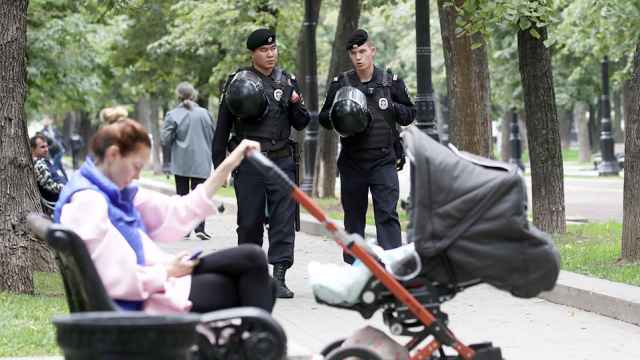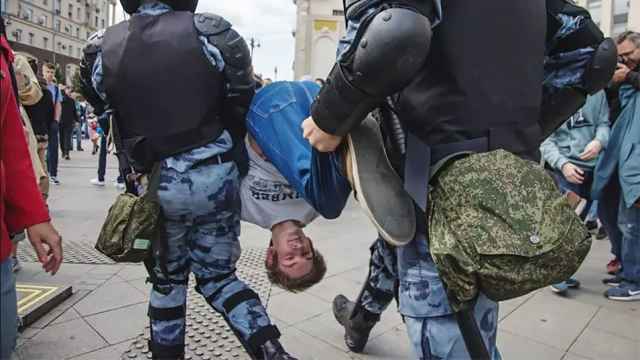Russian authorities ordered mobile operators to cut access to mobile data services during last weekend's opposition protests in Moscow, marking the first documented case in Moscow's history, Russia’s Internet Protection Society NGO has said.
Russia's first documented instance of authorities ordering to stifle mobile internet access took place in the country's republic of Ingushetia in October, when thousands gathered against a border deal with neighboring Chechnya. Last Saturday, 1,001 people were detained along Moscow’s central Boulevard Ring during marches in support of opposition candidates rejected from running for city council.
Mobile internet access was restricted in an area of 13 square kilometers in Russia’s capital between 1 p.m. and 7 p.m. on Aug. 3, the Internet Protection Society said Monday.
The NetBlocks internet monitoring group documented a “targeted internet shutdown” in central Moscow at the time, including partial disruptions at the state-controlled provider Rostelecom.
Protesters and journalists, including a Moscow Times reporter, reported having difficulties connecting to the internet along the demonstration route that day.
Signals were shut down “at the demand of law enforcement agencies,” BBC Russia cited a call center letter it had obtained from one of Russia’s three major mobile operators as saying.
Two providers told Russian media they were experiencing network overload on Saturday, claims that the Internet Protection Society argued were “groundless” based on official estimates of low protester turnout.
“Unfortunately, sometimes the presence of a large crowd of people in a limited space leads to an overload of existing 4G networks, which have their own limits based on the number of subscribers in one cell and the size of the data channel,” a spokesperson for the MegaFon mobile phone provider told The Moscow Times.
Under Russian law, telecommunications services can be switched off on the decision of the Federal Security Service, the Interior Ministry or other law enforcement agencies.
A Message from The Moscow Times:
Dear readers,
We are facing unprecedented challenges. Russia's Prosecutor General's Office has designated The Moscow Times as an "undesirable" organization, criminalizing our work and putting our staff at risk of prosecution. This follows our earlier unjust labeling as a "foreign agent."
These actions are direct attempts to silence independent journalism in Russia. The authorities claim our work "discredits the decisions of the Russian leadership." We see things differently: we strive to provide accurate, unbiased reporting on Russia.
We, the journalists of The Moscow Times, refuse to be silenced. But to continue our work, we need your help.
Your support, no matter how small, makes a world of difference. If you can, please support us monthly starting from just $2. It's quick to set up, and every contribution makes a significant impact.
By supporting The Moscow Times, you're defending open, independent journalism in the face of repression. Thank you for standing with us.
Remind me later.






